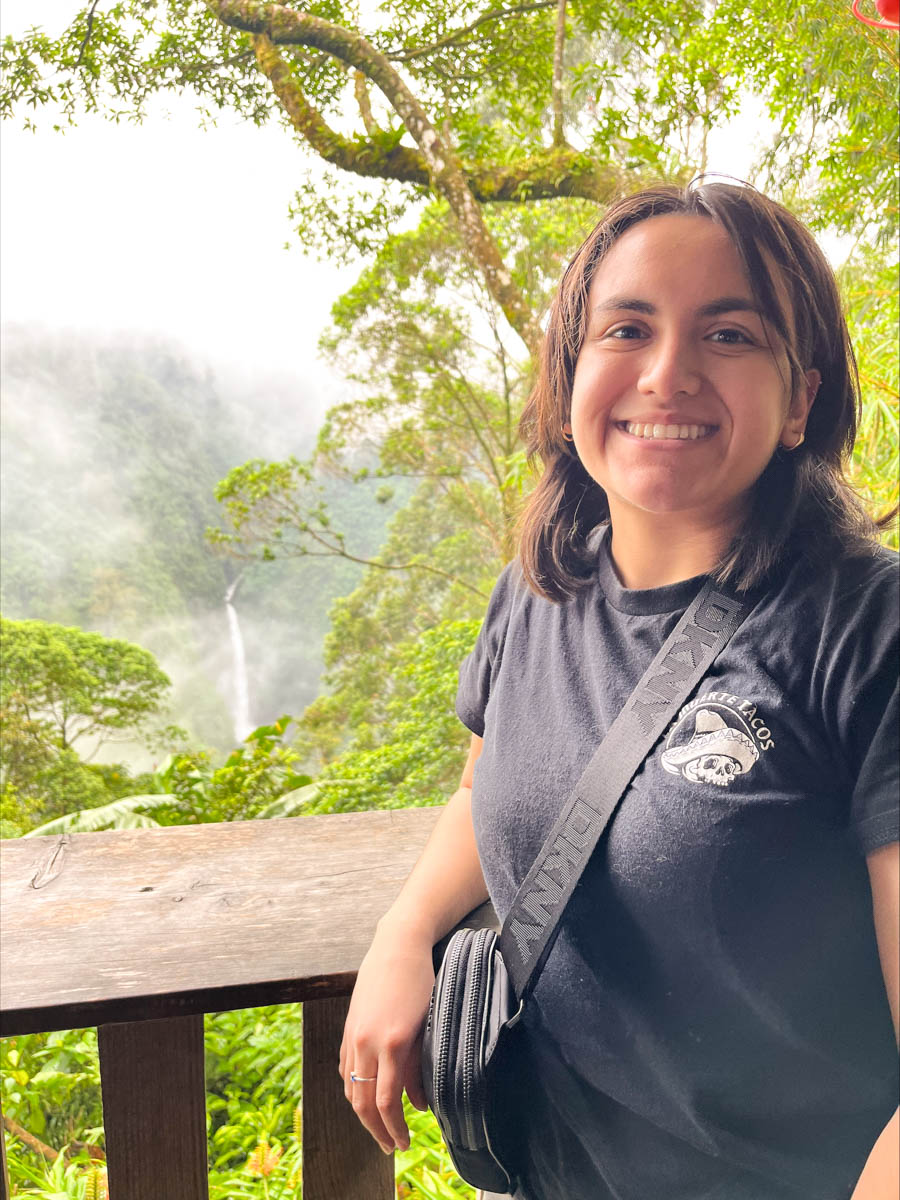Tropical Ecology & Conservation

Situated between the Caribbean Sea and the North Pacific Ocean, Costa Rica’s rugged mountains, spectacular waterfalls, diverse wildlife, volcanoes, and sandy beaches create a living science laboratory. Participants will gain an overview of the natural history and conservation issues for major terrestrial ecosystems of Costa Rica. Well-known for its variety of habitats and species, Costa Rica offers an ideal setting for immersion into complex and highly biodiverse forest ecosystems. By experiencing a variety of specific ecosystems first-hand, students will learn about broad principles of forest ecology, the challenges with conservation of natural resources in Costa Rica, and current projects focused on restoration of important ecological systems. Tours of sugar cane and pineapple farms and visits to La Selva Biological Station, Monteverde Cloud Forest, La Fortuna hot springs, and Poás Volcano National Park complete this exciting study abroad experience.
Quick Information
| Application Due | Oct. 1 |
| Academic Date | Jan. 9-18, 2026 |
| Credit Hours | 3 |
| Requirements | 2.5 MU GPA at time of application. Good academic standing. Open to all MU students. |
| Estimated cost | $3,807 (doesn’t include airfare) |
| Contact | Shanon Dickerson, Director of International Study Programs |
Location
Monteverde Institute is a non-profit association dedicated to advancing the knowledge and practice of sustainable living through education, applied research, and community engagement. Located in the highlands of northwestern Costa Rica, Monteverde Institute is situated near the continental divide. Its 32-acre campus is an exemplary model of sustainable building practices, including treatment of grey water, composting and high efficiency lighting. The campus is surrounded by protected cloud forest as part of a natural preserve that safeguards more than 65,000 acres of endangered tropical forest.
Accommodation and Meals
Students will be housed in group accommodations for the duration of the program. These include biological/field stations, cabanas, and hotels. In some cases, students will have only a single roommate in one location, but four or more in another location. Most bathrooms will be shared, community facilities. All housing costs are included in the program fee.
Most meals are included in the program fee; however, students will be responsible for some of their meal costs. As the program itinerary is finalized, an estimate for out-of-pocket meal expenses will be provided. Please note that the individual spending habits of each student will vary, so participants should use the estimate as a baseline and adjust according to their own eating habits.
Program Travel
International round-trip air travel will be arranged for the Costa Rica group. This flight generally departs from and returns to Lambert International Airport in St. Louis. Transportation from Columbia to Lambert will be the responsibility of the student. The faculty program leaders, Benjamin Knapp, Ph.D., and Michael Stambaugh, Ph.D., travel with the group flight to facilitate airport check-in and transfers. Because of the fluctuation in airline prices, the airfare estimate is listed separately below; however, once group reservations are made and the flight is finalized, the ticket cost will be added to the program fee and billed to participants’ MU accounts.
All in-country program travel is organized by CAFNR and is included in the program fee. Some individual local transportation costs may be accrued by students wishing to explore program locations independently during their free time.
Academics
Students are enrolled in three credits of AFNR 2191: International Agriculture, Food and Natural Resources (humanities; graded A/F) for the spring semester. Students should work with their advisors to determine how these credits will count toward their individual graduation plans.
Please be aware that there will be mandatory orientation classes prior to departure. Dates and times for the class meetings will be available shortly after the confirmed program participant list is finalized, generally around mid-October. Participants will be notified of the class meeting details via email.
Estimated Cost
MU Tuition (3 Credits; Spring Semester): Varies per student. See website for details.
| Non-refundable deposit: | $350 |
| Intl Center Fees: | $245 |
| Program Fees: | $3,212 |
| Total cost estimate without airfare: (includes accommodation and most meals) | $3,807 |
| Airfare estimate (does not include baggage fees): | $1,300-1,500 |
| Additional meals & misc. estimate: | $350-500 |
Special Considerations
Costa Rica is a tropical country. Weather in January will be warm, with high temperatures in the 90s and low temperatures in the 70s. Precipitation may vary depending on the location, with dry conditions on the Pacific side. There will be frequent driving through mountainous terrain that could lead to motion sickness, in some cases on rough roads. Activities include hiking and navigating uneven ground and stairs. The program focuses on natural resources and ecology, so you will be immersed in forests with abundant wildlife (e.g. insects/bees, snakes, potentially dangerous animals, etc.). There will also be visits to San José, a big city, which has hazards of any big city with roads, cars, and people.